Daily Life in Humjibre

Group size
Each session typically includes 4–8 volunteers, ensuring focused project work and close collaboration with our local team.
Housing
Volunteers stay in a two bedroom house in GHEI's compound. There is a central living area with two bedrooms on either side, housing up to four people in each bedroom (building on the left in this picture). There is electricity (unless there is a power outage), fans, and mosquito nets over each bed. If additional housing is needed, there are rooms in the building to the right that can house an additional four people. Volunteers are separated by gender into rooms.
Outside, there is a small kitchen, and another building with flush toilets and showers. The showers have running water, but the water is not heated.

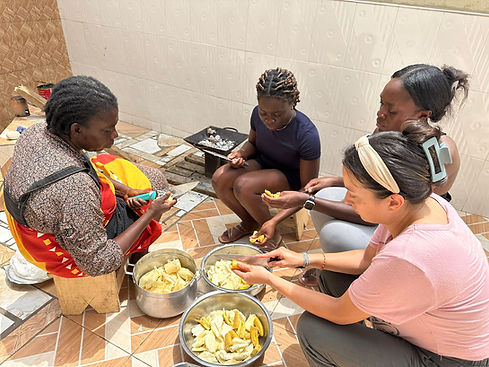
Eating and Drinking
Breakfast: you will be responsible for (volunteers have preferred to get this on their own in the past). It will cost about $20 for the two weeks.
Lunch and dinner: You will receive two hearty meals a day (rice, beans, stew, plantain).
Snacks: You may wish to bring snacks from home like protein bars.
Special diets can mostly be accommodated. Check with us if you have severe food allergies.
Water: you will be provided with purified water.
Coffee: coffee is not common in Ghana! Bring instant coffee if you like.
Clothing
Dress modestly: women should cover shoulders and knees. Bring breathable, quick-dry clothes, closed-toe shoes for work and the farm visit. A packing list will be provided.
It is possible to do laundry, but only by hand. You can bring detergent or find it locally. There are clotheslines available.


Communication with home
Bring your cell phone- it will likely work in Ghana including in Humjibre. Check with your carrier regarding possible charges.
Internet is limited, but email and texting is possible.
Whatsapp generally works well for calls.
Cultural Immersion
At GHEI, we believe it’s essential for volunteers to have a meaningful cultural experience alongside their service. Here's what you'll experience:
-
Meet community leaders – Be formally welcomed by the Chief, Elders, and Queenmother of Humjibre.
-
Cocoa farm visit – Tour a working cocoa farm to understand the significance of cocoa, to the economy and to local livelihoods.
-
Batik making – Participate in a batik workshop, where you will learn about adinkra symbols and create a cloth of your own design.
-
Traditional drumming & dancing – Join a local performance group for an evening of traditional music and dance, with the opportunity to learn basic drumming techniques.
-
Cooking experience – Take part in preparing fufu, a staple Ghanaian dish.
-
Healthcare insight – Visit a district hospital and observe well-child care in the community, gaining perspective on two levels of healthcare delivery in rural Ghana.


Communication with Ghanaians
English is the third language children in our area learn to speak, after Sefwi and Twi. They learn English in school so they generally speak English fairly well by the end of elementary school. Note that foreign accents can be tough on both ends though!
All of our staff is fluent in English.
Specifics about the itinerary
Draft itineraries for each session, which will be refined during planning:

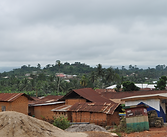
What else will I do in Humjibre aside from my main project?

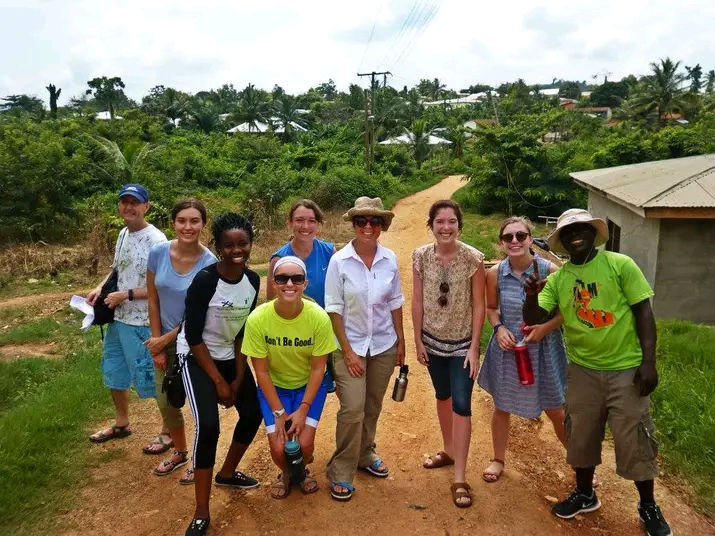

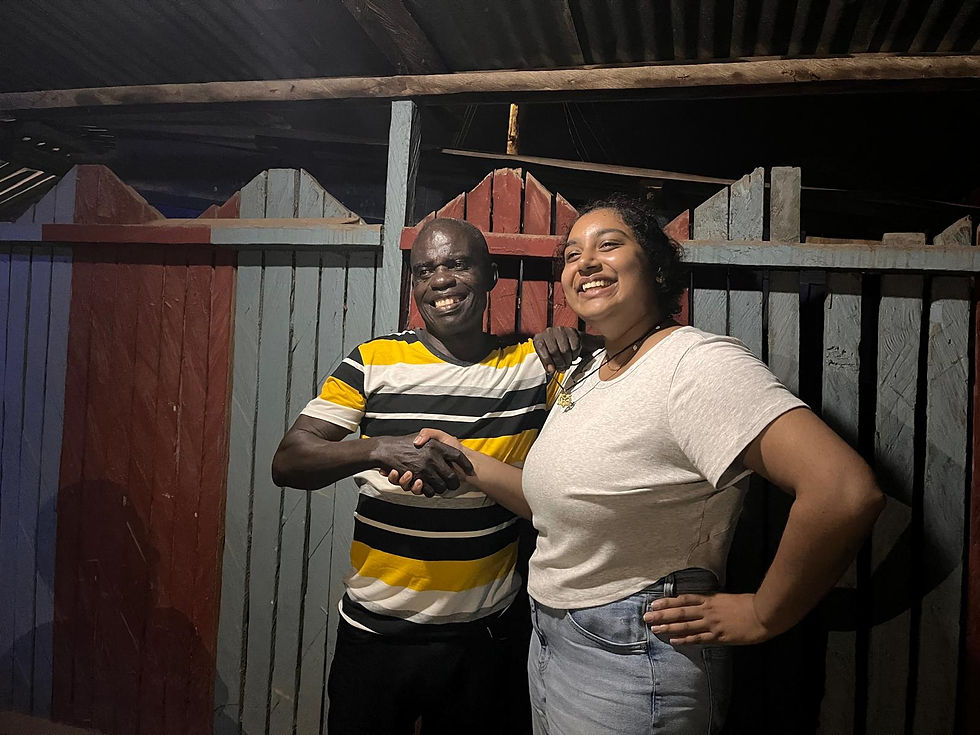

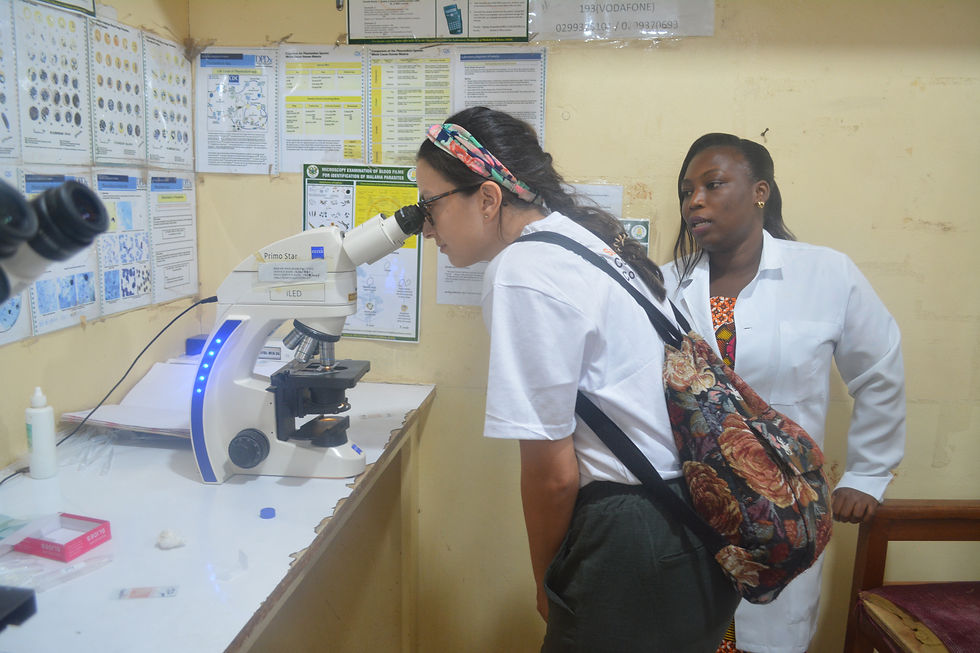



"My favourite and I think the most beneficial aspect of this programme, besides the academic, was the cultural exposure GHEI ensured we have. From visiting multiple communities and cities to learning about the history of Ghana itself... being able to see and engage firsthand with the special cultural practices and norms of Ghana has helped me learn so much."
Keira Govender, 2025 volunteer

